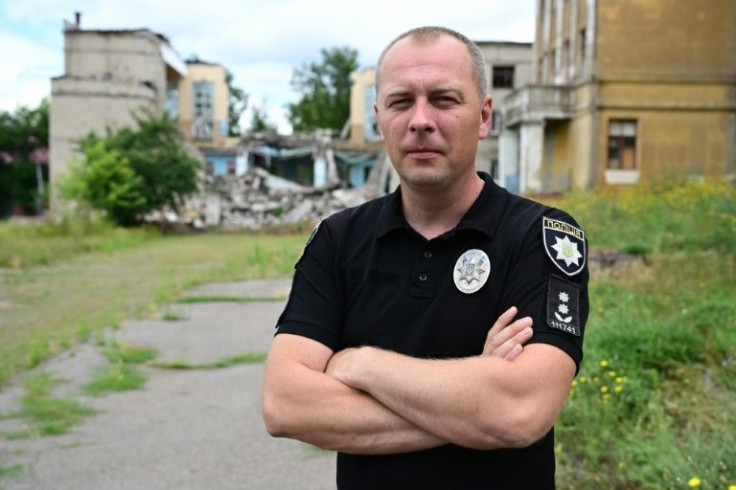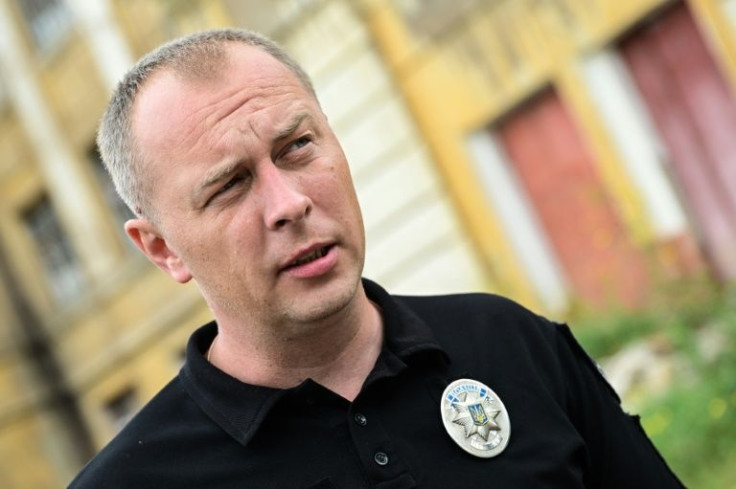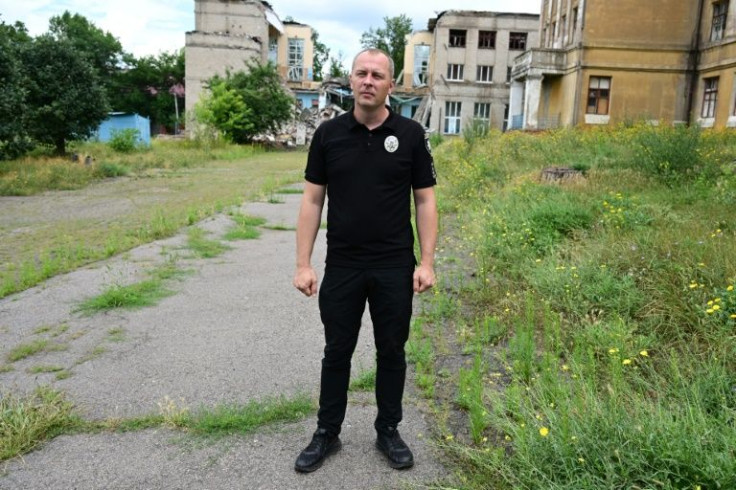'Return To The Past': A Donbas Town Held By Russia
In a video on a Russian channel, the "new" head of police in Lyman says the invaders were welcomed joyously by residents with cries of: "Finally, Russia is here!"
Now in Kramatorsk, just 42 kilometres (26 miles) away in eastern Ukraine, the police chief forced to flee by Russian troops, Igor Ugnivenko, laughs bitterly.
"I don't know who this guy is," he said.
"But just look at him, sitting in my office in the chair that my wife bought for me! Look at the sign on his shirt: USSR."
"USSR! It's crazy," the 37-year-old said, shaking his head in disbelief.

Major Ugnivenko still introduces himself as the head of Lyman's police.
He left the city on May 23 after weeks of shelling and a major offensive by Russian troops forced the Ukrainians to pull back.
In Kramatorsk, the administrative centre of the Donetsk region that Moscow wants to take over, Ugnivenko remains in contact with some Lyman residents and wants to talk about the situation in the town.
"It's hard for the civilian population," said the chief, who wore a black uniform. "There is no electricity, gas or water. How or if food aid is being sent, I don't know."
His assertions could not be independently verified by AFP.

Some 8,000 people remain in Lyman -- compared to 25,000 before the Russian invasion.
It already saw fighting in 2014 when Russia-backed separatists took over part of the region, and many civilians "were waiting for the Russians to come", Ugnivenko said.
"Today they shout that everything is going well, that the Soviet Union is back," said the officer, who was just four years old when the Soviet Union fell apart.

"I am not from a Soviet generation; I barely knew it. I went to a Ukrainian school and university," he told AFP.
"I speak Ukrainian perfectly and I have no problem with the west of the country," he added, referring to misgivings among some locals about the government in Kyiv.
"It seems crazy, but what is happening in Lyman is a real return to the past. And it's a road to nowhere," he said.
Private properties and businesses have been seized and will be "nationalised" by the Donetsk People's Republic, the entity self-proclaimed by separatists fighting alongside Russian forces, Ugnivenko said.
A working-class town like many in the industrial region of Donbas, Lyman always lived off the railways -- an industry that employs half the population.
"Many workers stayed in Lyman. They thought they could continue working," Ugnivenko said.
"But the Russians took their equipment and transferred the material to Debaltseve" some 140 kilometres to the south, which is controlled by separatists.
"What I am disappointed by is that people did not understand what was awaiting them. Some people have wanted the 'Russian world' for years but will now be disappointed. What future do they have? None!" he added.
"We were maybe a small town, but we had the railways and also a regional trauma centre" opened in 2015, which employed medical staff who fled the city of Donetsk when it came under separatist control in 2014.
Ugnivenko said the building was now partially destroyed and the doctors had left.
Local residents could choose to leave, but only to go towards Russia or separatist-held territories, he added.
"I want my four children to live in a state of law where they can travel as they wish," added Ugnivenko, who has sent his family away from the frontline to the city of Dnipro.
"Sooner or later, we will liberate our towns," he told AFP, remembering the idyllic life he led in Lyman until just a few months ago.
"I had the house of my dreams. A wooden house on two floors on the edge of the forest. It was shelled and burnt down in 15 minutes."
© Copyright AFP 2024. All rights reserved.











